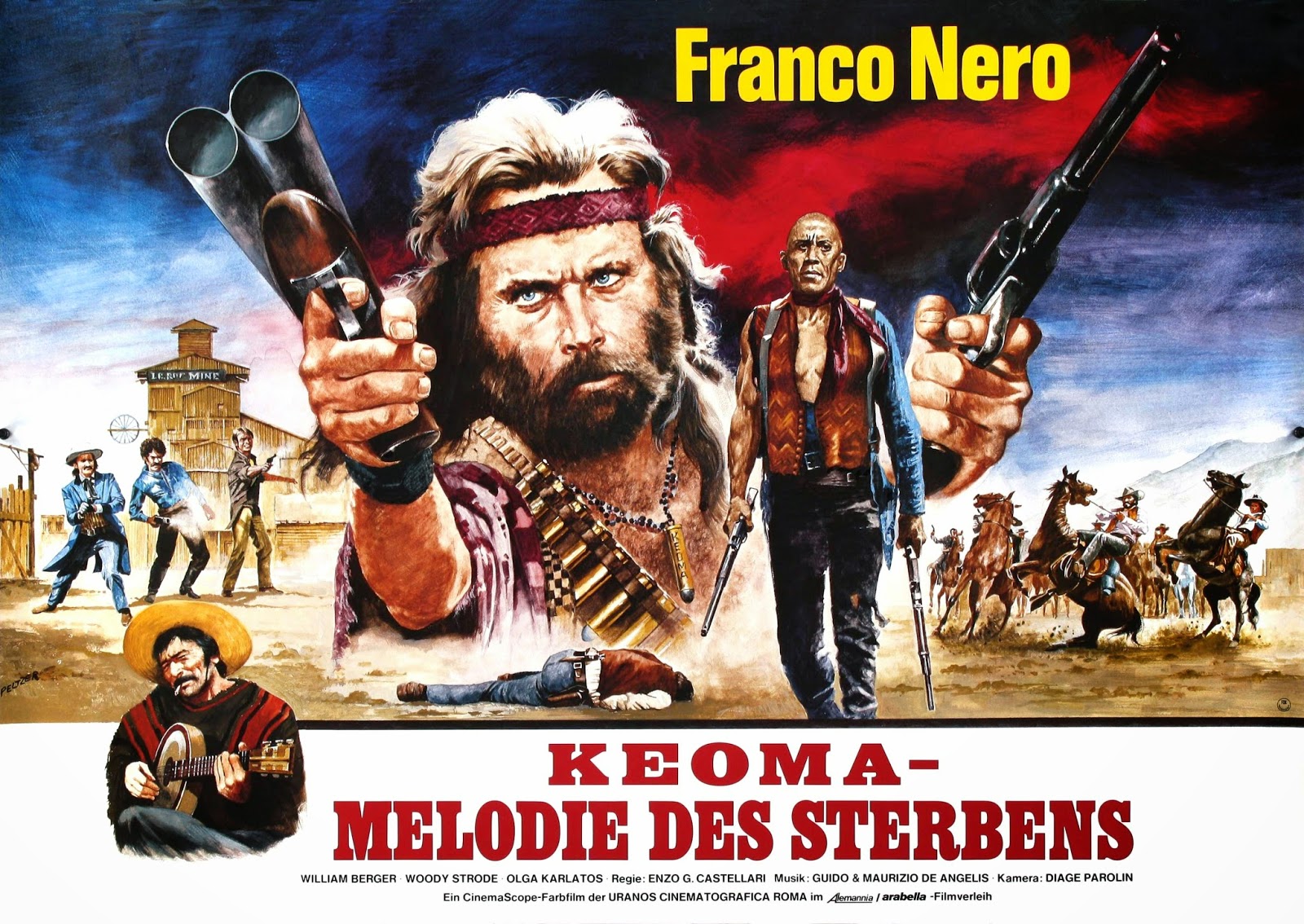Keoma (AKA Django Rides Again, The Violent Breed) (1976)
Dir. Enzo G.Castellar
Franco Nero stars as Keoma, a half indian that returns home
after the Civil War to find his half-brothers aligned with a man named
Caldwell, who with a group of former soldiers has taken over the town. After freeing Lisa (Karlotos*), a pregnant woman
that was being sent off to a plague colony near the town, he begins to free the
town with the help of his father and a former slave named George (Strode). A first glance the movie has a fairly typical
plot, but what sets it apart from other films in this genre is the way that it
tells the story, using a lot of interesting camera work and imposing a lot of
Christ imagery onto the lead character. The first thing that you notice is that
with the beard and the long hair, Keoma has the look of a western version of
Jesus. Then you have him helping the
sick and downtrodden people of the town, and then being crucified near the end.
The lyrics to the score during the scene stating “you know that suffering is
love” and “don’t you think the time has come to love”, hammers it home a
little, just in case you felt it was being a bit too subtle. About the score, at first I didn’t mind the
score but after a while it started to get on my nerves. I know that it has its
fans, but towards the end of the film I started to get tired of the screeching
voice re-explaining everything I had just seen.
Action wise the nighttime escape scene where Keoma and Lisa
escape the town was good, as was the scene where he stares down the goons
trying to extort money for medicine from the townsfolk where Keoma offers 4
cents to the bad guys. (“The price of 4 bullets”). And the final showdown between Keoma and his
brothers was great and full of tension. At
first it seemed like Woody Strode was going to spend most of the movie getting punched
and knocked down, but he does some damage during the action scene at the center
of the movie (and has a bizarre death scream) I did think that it was
interesting that Keoma’s father knew that his other children were bad and
needed to be stopped, but as a parent he couldn’t bring himself to be the one
to kill them. There was a great conversation between Keoma and his father,
where Keoma says “You used to be the fastest”, and his father replies “The
fastest. I used to be the fastest. That’s not the strongest. It just means you live a little longer. Don’t mean you’re
right either. I’ve lived long enough to find out how wrong I was about so many
things.” That line (especially the last part) really resonated with me as I
start to get older. It’s remorseful but at the same time it kind of reflects
how grim and bleak the movie is. Keoma, his father and George are the only good/heroic
forces in the film.
Overall I really enjoyed the movie, and would recommend it
to anyone that’s interested in spaghetti westerns. It has a lot of great
cinematography, and there’s a lot going on in the movie that sets it apart from
other films in the genre. It has a great lead at its center, and some great
action scenes. Plus the fact that you can get it on the same bluray as The
Great Duel for about $6 makes that disc on of the best deals you can find.
“He can't die. And you know why? Because he's free. And man
who's free never dies.”
*Everytime I see Olga Karlotos in a movie, the
first thing that comes to my mind is the liner notes for the Anchor Bay release
of Fulci’s Zombie, that described the
scene where he “lovely eye” was pierced by the wood splinter.

No comments:
Post a Comment